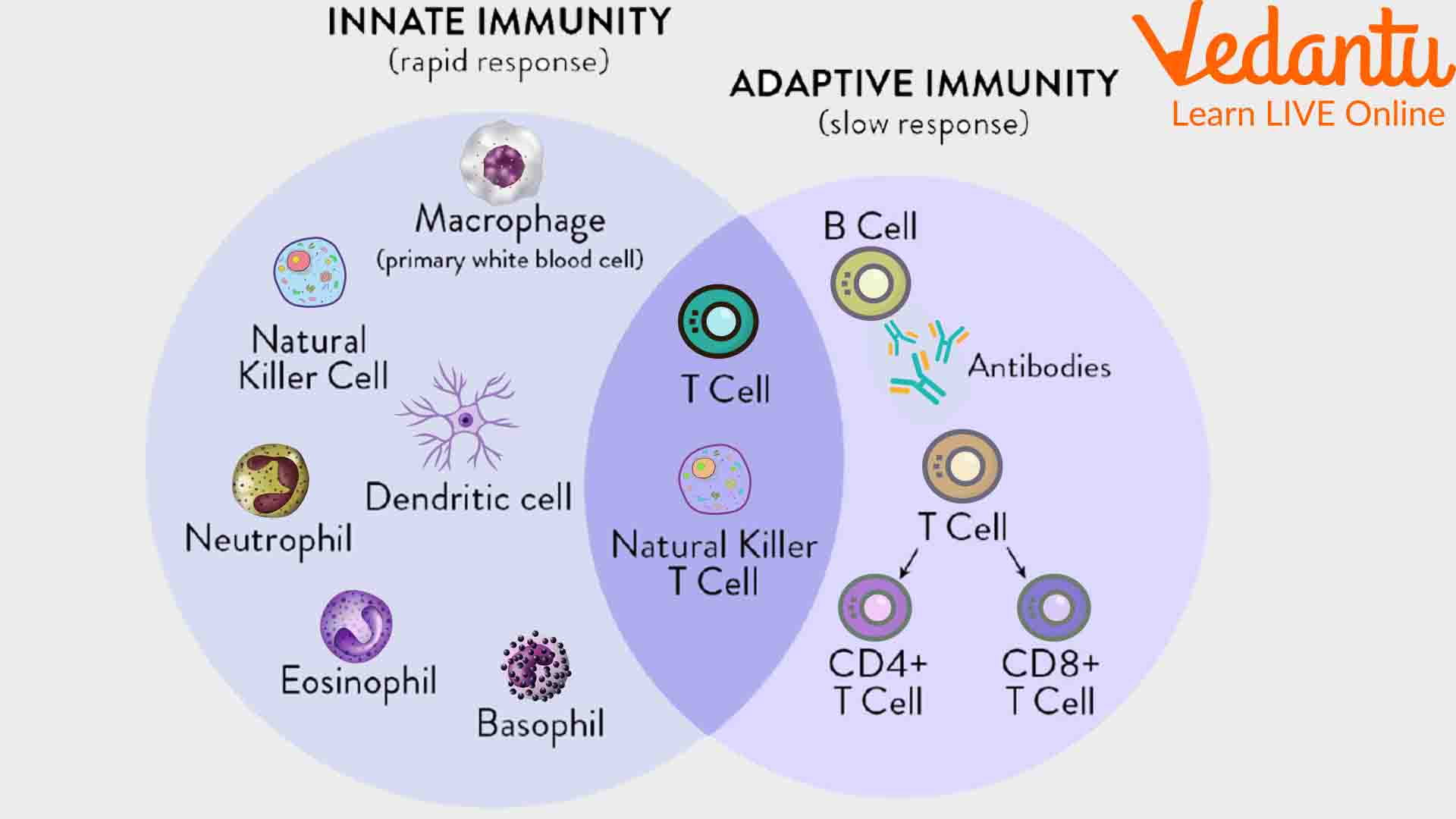Types Of Antibodies And Cells In The Immune System And Their Functions
Introduction
All living organisms have their own immune systems. The immune system of higher animals is more complex and efficient. For instance, the immune system of the human body is marvelous when it comes to the defense from various pathogens and diseases.
It comprises different types of antibodies produced as a response to a pathogen attack. The systematic coordination between different systems enables the frontline warriors to reach the spot and do the needful. Let us find out the science behind the immunity system of our body.
What is Immunity?
In simpler words, immunity is defined as the defense mechanism of the human body produced from the cumulative action of cells and antibodies when a pathogen attacks it. It works relentlessly to protect us from different infections without our conscience. The quick detection of pathogens and the release of defensive antibodies to fight comprise the function of our immune system.
Types of Immune Systems
According to the function, there are two types of immune systems protecting our body from infections.
Innate or natural immunity
As the name suggests, this type of immunity is present by birth. An organism is born with this immunity. It shows that the organism actually carries the immunity derived from the genes of the parents.
This immunity is activated immediately when a pathogen is detected in the human body. It provides the components related to natural resistance. These components are intact skin, natural killer cells, neutrophils, etc. These cells comprise the initial response of the human body to a pathogenic attack.
From the above discussion, we can clearly understand that this immunity is a long-term defense system actively defending us from microbial infection. Hence, there are natural barriers that protect us from infections.
Acquired Immunity
As the name suggests, this type of immunity is acquired or developed after birth. This is the best feature of our immune system. It can learn from experiences. It is also called acquired immunity. It is specifically mediated by the formation of antibodies and lymphocytes.

The Immune System of the Human Body
Also Read- Can Humans Grow Wings and Fly?
Types of Natural Barriers
Physical barrier – This barrier comprises skin, cilia, body hair, eyelashes, gastrointestinal tract, respiratory tract, etc. They form the first defense line.
Physiological barriers – This barrier comprises the components like hydrochloric acid in the stomach and saliva in our mouth.
Cellular barriers – This part of the immune system comprises the cells produced to detect and kill pathogens. They are leukocytes (white blood cells), lymphocytes, neutrophils, basophils, monocytes, and eosinophils. These cells are present in tissues and blood.
Cytokine barriers – These cells produce interferons to coat infected cells and stop the infection from spreading.
Cells of Innate Immunity
Here is a list of cells that comprises our innate immunity.
Phagocytes – These cells roam around in our body to find anything foreign. An undetected substance is engulfed and destroyed.
Macrophages – These cells have the supreme capability of moving across walls of the circulatory system. It means it can easily enter any location via the circulatory system and release cytokines to signal and recruit other immune cells to fight infection.
Mast cells – These cells help in the healing of wounds.
Neutrophils – These cells contain granules that kill pathogens in contact.
Eosinophils – These cells also kill bacteria and other pathogens in contact.
Basophils – These cells attack and destroy multicellular parasites. They release histamine.
Dendritic cells – these cells are present in the tissues to sense infection and send signals to the immune system.
Natural killer cells – These cells stop the infection from spreading by killing the infected cells.
So, the answer to the question of which cells are the main warriors of the immune system is this list.
Cells comprising Acquired Immunity
B-Cells – These cells originate in the bone marrow and are activated when foreign agents are encountered. They mark these agents and start producing antibodies in response to a particular antigen. These antibodies attach to the surface of the antigen and comprise humoral immunity.
T-Cells – These cells originate in the thymus and bone marrow. They differentiate into helper cells, regulatory cells, and cytotoxic cells and are then released into the circulatory system. They are triggered by antigens and release cytokines. Cytokines act as messengers that initiate the differentiation of B-cells into antibodies and plasma. T-cells also kill cancer cells. The secondary immune response antibody generation occurs when the same antigens are detected.
Types of Acquired Immunity
Active Immunity – This is the direct response to an antigen. Our body starts producing antibodies.
Passive immunity – According to our immune system structure, the antibodies are attained from outside or a different source. They are not generated inside the human body.
How can We detect Diseases?
Almost every fatal disease has an immune system test designed to detect the presence of infection-fighting proteins or antibodies in the body.
Some tests are done to check the congenital immune diseases acquired from parents such as allergic diseases, autoimmune diseases, immunodeficiency, connective tissue disease, etc.
Wrapping up
If you are asked to write the function of antibodies, you can now easily do it. This simplified format of the different parts and types of our immunity will help you understand how efficiently the human body works. You will clearly identify the cells of our immunity when their functions are explained.
Imagine how efficient the human body is. We have evolved to form a complex physiological system that is intelligent enough to identify pathogens and distinguish them from our own cells. The immune system attacks infected cells to stop the infection from spreading and acts methodically on the pathogens. When our immune system attacks our own cells, we develop autoimmune diseases.
This is all about the brilliant defense mechanism developed by the human body called the immune system.







